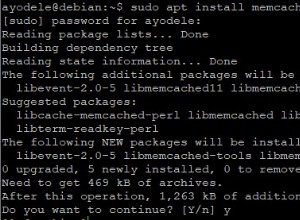A1 : Oui, ils utilisent le même pool de connexions.
A2 :Ce n'est pas une bonne pratique. Comme vous ne pouvez pas contrôler l'initialisation de cette instance. Une alternative pourrait être d'utiliser singleton.
import redis
class Singleton(type):
"""
An metaclass for singleton purpose. Every singleton class should inherit from this class by 'metaclass=Singleton'.
"""
_instances = {}
def __call__(cls, *args, **kwargs):
if cls not in cls._instances:
cls._instances[cls] = super(Singleton, cls).__call__(*args, **kwargs)
return cls._instances[cls]
class RedisClient(object):
def __init__(self):
self.pool = redis.ConnectionPool(host = HOST, port = PORT, password = PASSWORD)
@property
def conn(self):
if not hasattr(self, '_conn'):
self.getConnection()
return self._conn
def getConnection(self):
self._conn = redis.Redis(connection_pool = self.pool)
Puis RedisClient sera une classe singleton. Peu importe combien de fois vous appelez client = RedisClient() , vous obtiendrez le même objet.
Vous pouvez donc l'utiliser comme :
from RedisClient import RedisClient
client = RedisClient()
species = 'lion'
key = 'zoo:{0}'.format(species)
data = client.conn.hmget(key, 'age', 'weight')
print(data)
Et la première fois que vous appelez client = RedisClient() va réellement initialiser cette instance.
Ou vous voudrez peut-être obtenir une instance différente basée sur différents arguments :
class Singleton(type):
"""
An metaclass for singleton purpose. Every singleton class should inherit from this class by 'metaclass=Singleton'.
"""
_instances = {}
def __call__(cls, *args, **kwargs):
key = (args, tuple(sorted(kwargs.items())))
if cls not in cls._instances:
cls._instances[cls] = {}
if key not in cls._instances[cls]:
cls._instances[cls][key] = super(Singleton, cls).__call__(*args, **kwargs)
return cls._instances[cls][key]




